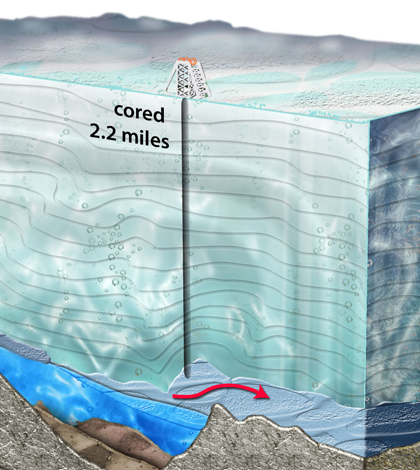Researchers discover signs of life in subglacial Lake Vostok

A subglacial lake researchers breached in February by drilling through two miles of ice may host life, according to a Bowling Green State University press release.
Researchers at BGSU sequenced DNA from ice cores extracted from Antarctica’s Lake Vostok. They found thousands of bacteria, fungi cells and two archaea species. Some of the cells discovered are even commonly known to live in fish’s digestive systems.
Doubts have been cast on the discovery by some noting that it is possible the cells were a result of organic fluid used to lubricate drill bits boring into ice above the lake.
BGSU researchers contested doubts. Scott Rogers, the BGSU biology professor who led the study, said the team was careful to sequence sterilized DNA and RNA samples. The researchers also claim the organisms were too diverse to have all come from drilling fluid.
Lake Vostok is estimated to have been buried by ice for 34 million years. It is the fourth deepest lake in the world.
Click here to read the full study in the Public Library of Science Journal.
Image: A cross-section of Lake Vostok (Credit: Nicolle Rager-Fuller/National Science Foundation)




0 comments